
The 5 best supplements to soothe nerve pain and tingling
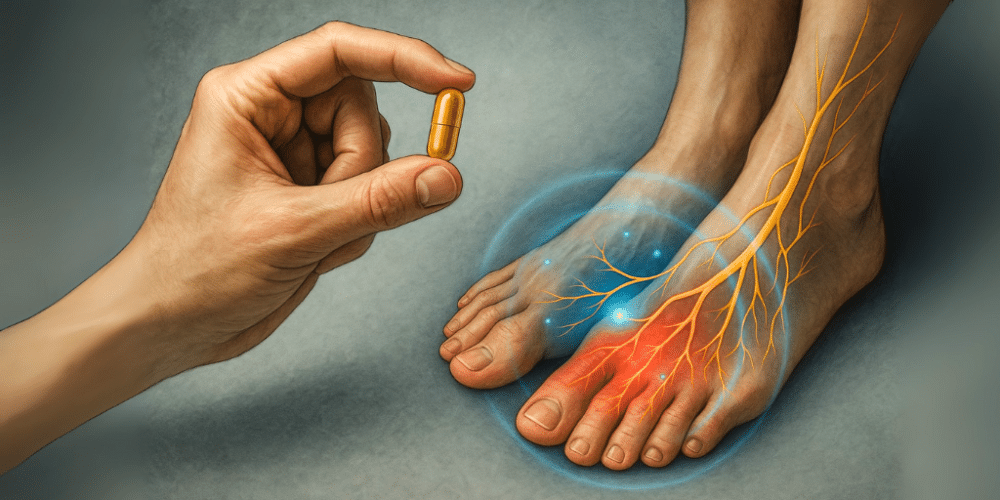
Are you struggling with that persistent numbness, tingling, or stinging, burning pain in your hands or feet? If so, you might be dealing with peripheral neuropathy, a condition that affects the nerves outside of your brain and spinal cord. It can be frustrating, debilitating, and dramatically impact your quality of life. While it’s crucial to work with your doctor to find the root cause, you’re probably also wondering what you can do right now to find some relief.
I want to be very clear about two things right from the start. First, you must always talk to your doctor before starting any new supplement. It’s not just a suggestion; it’s essential for your safety. Supplements can have powerful effects—both good and bad—and can interact with medications you’re already taking. Second, there is no magic pill. If anyone promises you an instant cure for all your pain, you should be skeptical. True healing is a process. With that said, there are supplements that have been shown in clinical studies and through extensive medical experience to help soothe nerve irritation and inflammation. As a doctor who is deeply interested in wellness and treats patients with peripheral neuropathy, I want to share what the evidence shows can genuinely help. (Based on the insights of Dr. Grant Cooper.)
Key Takeaways
- Consult Your Doctor: Never start a new supplement without medical guidance. This article is for informational purposes only.
- Alpha-Lipoic Acid (ALA): The most researched and proven supplement for reducing the pain, tingling, and numbness associated with peripheral neuropathy.
- Curcumin: A powerful anti-inflammatory compound from turmeric that helps reduce neuropathic pain by targeting specific inflammatory pathways.
- Acetyl-L-Carnitine (ALCAR): An amino acid backed by strong clinical trials for its ability to alleviate nerve pain and improve nerve function, especially in diabetic neuropathy.
- Omega-3 Fatty Acids: These healthy fats not only help protect and regenerate nerves but also offer a wide range of benefits for your overall health, including your heart and brain.
- N-acetylcysteine (NAC): An antioxidant that works by suppressing key components that cause nerve inflammation, thereby reducing pain and debility.
5. N-acetylcysteine (NAC)
Coming in at number five is N-acetylcysteine, or NAC for short. This supplement is derived from the amino acid L-cysteine and is naturally present in foods like lentils, beans, and bananas. So, how does it help your nerves? NAC is thought to improve neuropathy symptoms by suppressing the activation of something called matrix metalloproteinases. You can think of these as key culprits in producing and worsening nerve inflammation. By calming them down, NAC helps reduce the inflammation around your nerves.
Studies have shown that NAC can reduce the pain and debility that come with peripheral neuropathy. While more research is always needed—and much of it is currently in progress—there is enough positive data and clinical experience to place NAC firmly on this list. It’s a promising option for taming the inflammatory fire that contributes to your nerve pain. A typical dosage is between 600 to 1,200 milligrams daily, but again, this is not individual medical advice. You need to have a conversation with your doctor to determine if NAC is right for you and what dosage you should take.
4. Omega-3 Fatty Acids
At number four, we have omega-3 fatty acids—the essential healthy fats your body loves. You’ve likely heard about them for improving heart health or reducing overall inflammation, but their benefits extend to your nervous system as well. Studies have shown that omega-3s may play an important role in preventing further damage to your nerves. Even more exciting, they may actually help your nerves regenerate after damage has occurred.
Clinical studies have demonstrated a reduction in nerve pain for patients taking omega-3s. While we’re waiting for larger studies to give us more exact recommendations, the existing evidence is very encouraging. There is significant animal data suggesting a large therapeutic effect on nerve health, supported by human data showing it reduces pain in people suffering from neuropathy. I’ve ranked omega-3s here not just for their direct nerve benefits but also for their incredible range of other positive health effects. When you take a supplement, it affects your whole body. The fact that omega-3s also improve heart health, reduce anxiety and depression, and lower overall inflammation makes them a particularly appealing choice.
You can increase your omega-3 intake through your diet. Small, cold-water fish like salmon, cod, and sardines are excellent sources with relatively low mercury content. For plant-based options, turn to flax seeds, chia seeds, and walnuts. Supplementation is another great way to boost your intake, with typical doses around 1 to 3 grams per day. However, be prudent. Omega-3s can have a blood-thinning effect, and doses over one gram per day have been associated with a slightly increased risk of atrial fibrillation. As always, talk to your doctor.
3. Acetyl-L-Carnitine (ALCAR)
The third best supplement for peripheral neuropathy is acetyl-L-carnitine, also known as ALCAR. This is an amino acid and a powerful antioxidant that plays a critical role in your body’s energy production. Specifically, it’s vital for fatty acid metabolism within your mitochondria—the powerhouses of your cells. For your nerves, ALCAR is important in controlling nerve growth factors and the neurotransmitters that your nervous system uses to communicate.
What makes ALCAR so compelling is the strength of the research behind it. Many studies, including randomized, double-blind, placebo-controlled clinical trials (the gold standard of medical research), have shown that ALCAR effectively alleviates nerve pain. It has also been shown to increase vibration perception in patients with neuropathy, particularly diabetic neuropathy, which is a sign of improved nerve function. If you’re looking for a supplement with solid scientific backing for nerve pain, ALCAR is one of the top contenders. Typical dosages used in studies are between 2 to 3 grams daily. As with the others, please consult your physician before adding it to your regimen.
2. Curcumin
Our runner-up for the best supplement is curcumin, a true superhero in the world of natural compounds. Curcumin is the biologically active component found in the delicious Asian spice, turmeric. For more than 4,500 years, turmeric has been a staple in Ayurvedic and other traditional medicinal practices for its powerful healing properties. Modern science is now confirming what ancient healers knew all along.
Curcumin has been shown to help with a vast array of inflammatory conditions, from joint pain to stomach problems, high cholesterol, and even anxiety. In fact, some studies have found it works as well or even better than non-steroidal anti-inflammatory drugs (NSAIDs) like ibuprofen for treating joint pain. For neuropathic pain, curcumin works its magic through several routes. It inhibits specific enzymes and proteins related to nerve pain and reduces general inflammation by lowering inflammatory markers like TNF-alpha. While large-scale clinical trials specifically for curcumin and peripheral neuropathy are still somewhat sparse, the combination of its proven track record for pain and inflammation, strong basic science, and a wealth of positive anecdotal data makes it a powerful tool.
If you want to get the benefits of curcumin, simply adding more turmeric to your food probably won’t be enough. Turmeric spice is only about 3% curcumin by weight, so it’s very difficult to eat enough to reach the concentrations used in clinical trials. This is where supplements come in. When you choose a curcumin supplement, make sure it includes piperine (an extract from black pepper, often listed as BioPerine). Piperine is crucial because it increases your body’s absorption of curcumin by an incredible 2,000%! Without it, most of the curcumin will pass through your body without being used. Dosages in studies typically range from 500 milligrams to 2 grams of curcumin per day.
1. Alpha-Lipoic Acid (ALA)
And now, for the absolute best supplement you can take for the symptoms of peripheral neuropathy: Alpha-Lipoic Acid, or ALA. If there’s one supplement that stands out for its robust body of evidence, this is it. ALA is perhaps the best-studied and most proven supplement for treating neuropathy symptoms, including reducing the pain, tingling, and burning in the feet and legs.
ALA is a potent antioxidant that your body actually makes on its own; it’s found in every single one of your cells. Its positive effects on neuropathy are attributed to its ability to improve blood flow to nerve tissue, which helps nourish and protect the nerves. It also has powerful direct anti-inflammatory and antioxidation effects, protecting your nerves from the oxidative stress that causes damage. Regardless of the precise mechanism, the results speak for themselves. ALA has been shown to be superior to a placebo in multiple high-quality trials for reducing the symptoms of peripheral neuropathy, with particularly strong evidence for diabetic neuropathy.
Dosages in studies have ranged from 600 to 1,800 milligrams daily. One major review of the research found that taking 600 milligrams daily for just three weeks was sufficient to significantly reduce the symptoms of diabetic peripheral neuropathy. Given the strength of the evidence, ALA is the clear number one choice to discuss with your doctor if you are seeking supplemental support for your nerve health.
Conclusion
Navigating the world of peripheral neuropathy can be challenging, but you have options to support your body and find relief. These five supplements—N-acetylcysteine, Omega-3s, Acetyl-L-Carnitine, Curcumin, and especially Alpha-Lipoic Acid—all have scientific evidence and clinical experience suggesting they can help reduce your symptoms of pain, tingling, and numbness. Remember, supplements are a tool, not a cure-all. They work best as part of a comprehensive approach to your health, under the guidance of a healthcare professional who understands your unique medical history. By taking proactive steps and having an informed conversation with your doctor, you can build a plan that supports your nerve health and helps you get back to living a more comfortable, active life.
News in the same category


Scientifically Proven Benefits of Pumpkin Seeds (Pepitas) and Pumpkin Seed Oil

The single move that instantly clears congestion and drains your sinuses
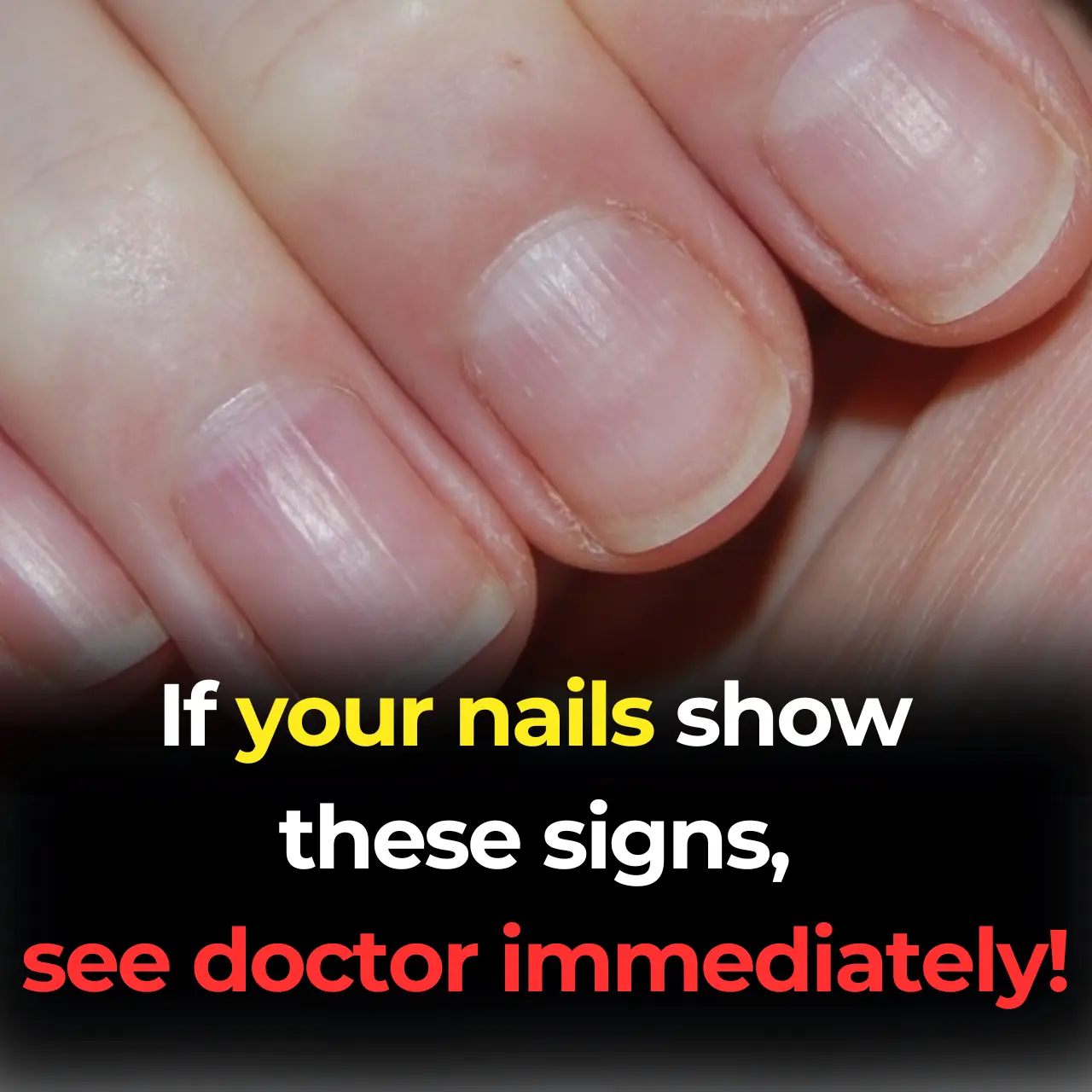
11 Health Warnings Your Fingernails May Be Sending

Stop blood sugar spikes—enjoy carbs without the crash!

The most powerful anti-cancer food you’ve probably never tried

🩺 Be Aware: If You Notice This Skin Change, It Could Be Skin Cancer — Here’s What to Look For

Gastroenterologist says this is the #1 drink for gut health

What your body does when you drink coffee every day
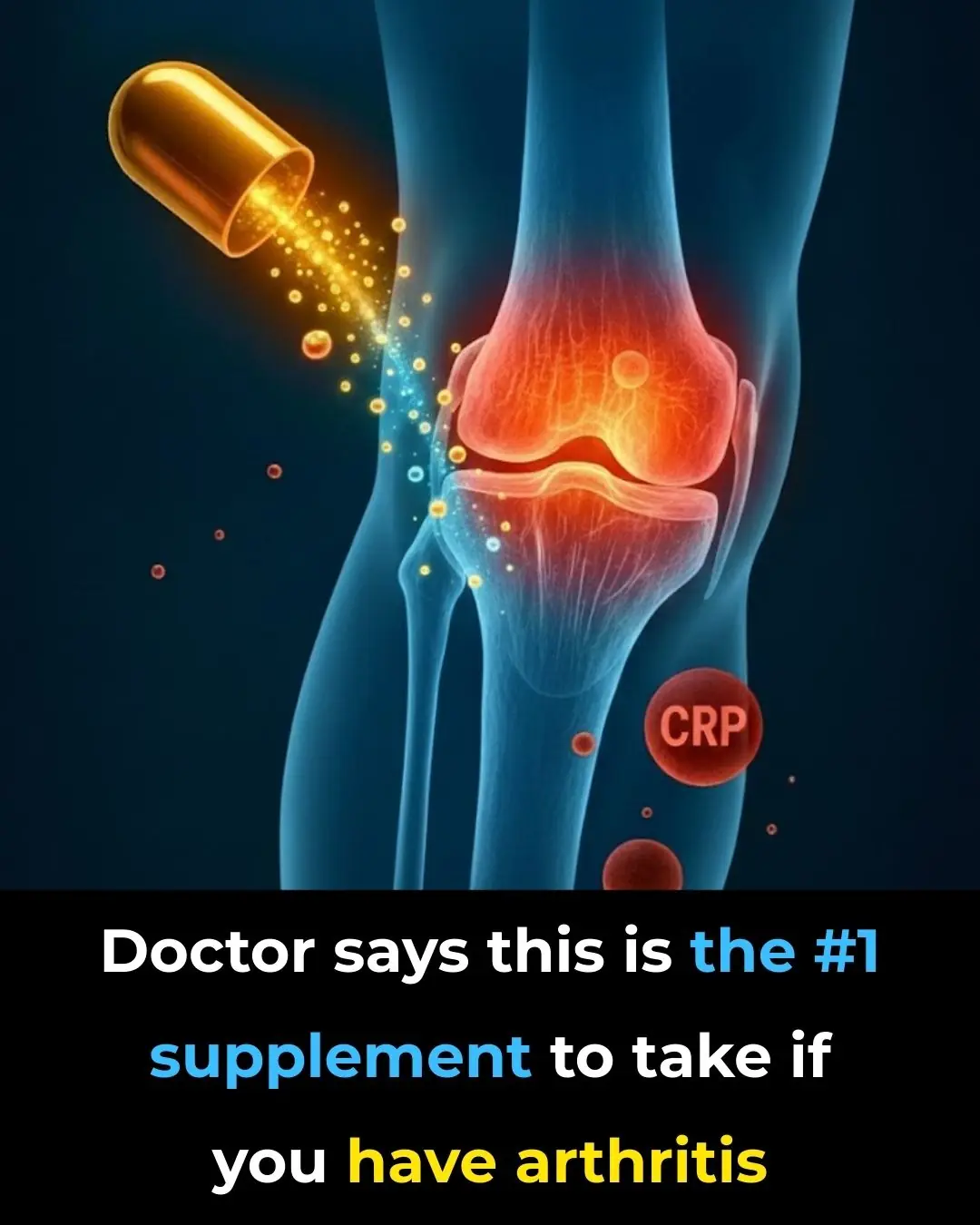
Doctor says this is the #1 supplement to take if you have arthritis

Stop blood sugar spikes—enjoy carbs without the crash!

Gastroenterologist says this is the #1 drink for gut health

6 Types of Warts (Signs, Symptoms, Home Remedies, and Treatment)

Many experts warn that this food may increase health dangers — stop eating it now!
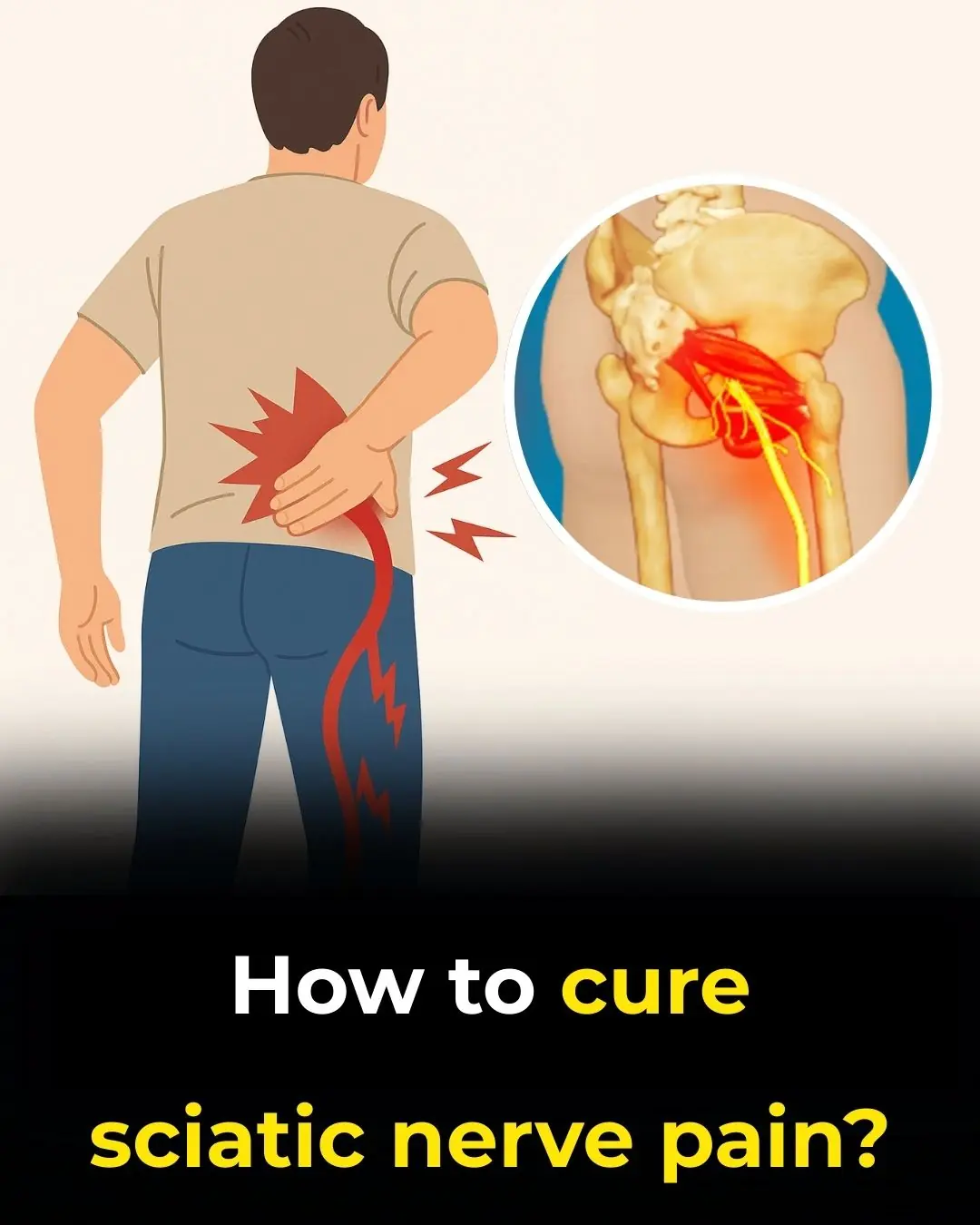
Gentle Stretches to Relieve Sciatica Pain

93% of people won’t do this yet it lowers blood pressure quickly

What Happens to Your Body When You Eat Canned Tuna Every Day

This Tropical Fruit Could Help Protect Your Liver and Fight Cancer

6 Foods You Absolutely Need To Avoid If You Suffer From a Thyroid Disorder
News Post

Utqiagvik Enters 64 Days of Darkness: Inside Alaska’s Annual Polar Night
The Versatility and Benefits of Orange Peel Powder

Here’s the secret why everyone puts avocados on the fire!
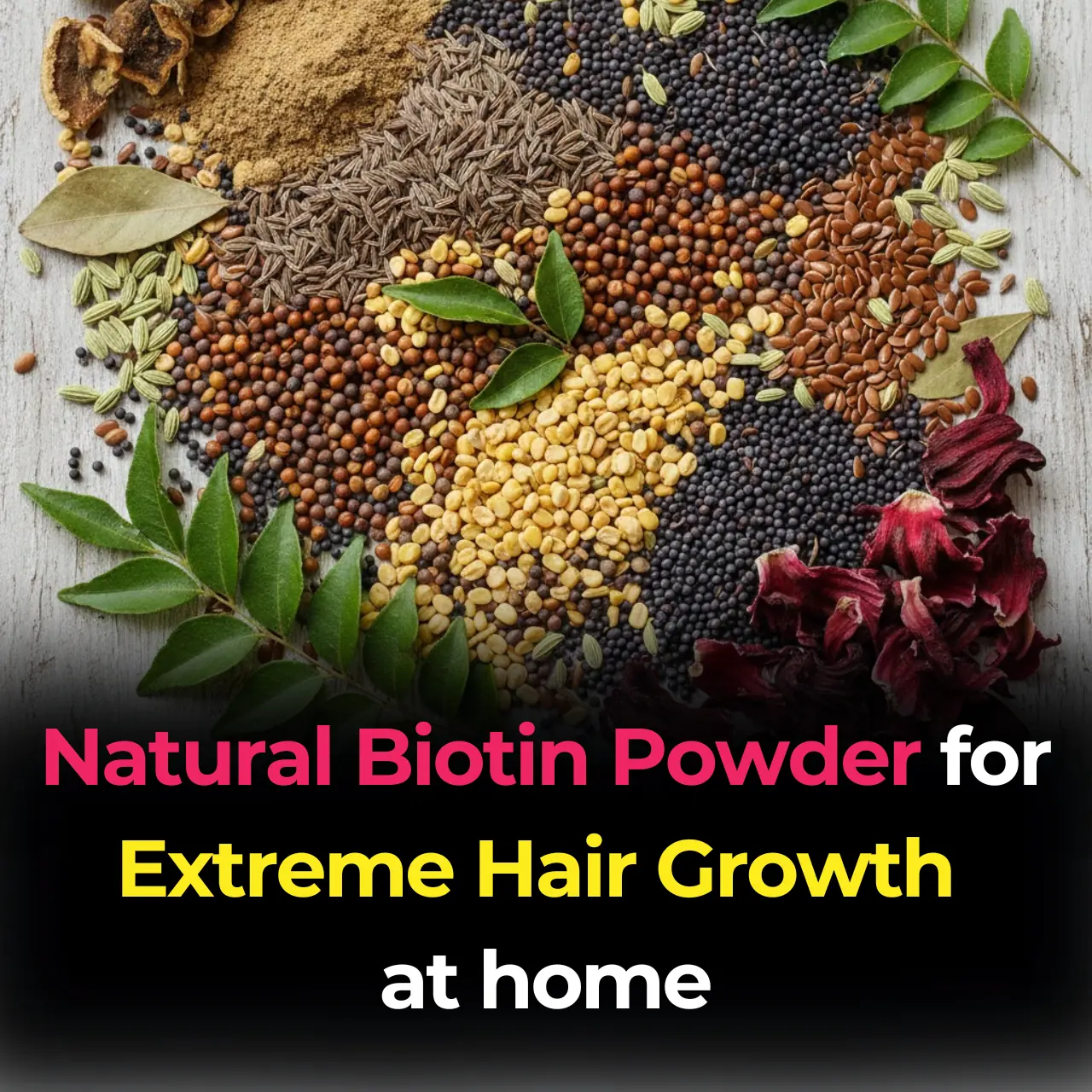
Natural Biotin Powder: Get New Hair in Bald Patch, Extreme Hair Growth

Community Backlash Stops Padel Court Plans in Bath Amid Rising Demand

Scientifically Proven Benefits of Pumpkin Seeds (Pepitas) and Pumpkin Seed Oil

26 Years, 214 Countries, 900,000 Kilometers: The Epic Journey of Gunther and Christine

My nana taught me this hack to get rid of dark circles in 5 mins with 0 work. Here’s how it works

The single move that instantly clears congestion and drains your sinuses
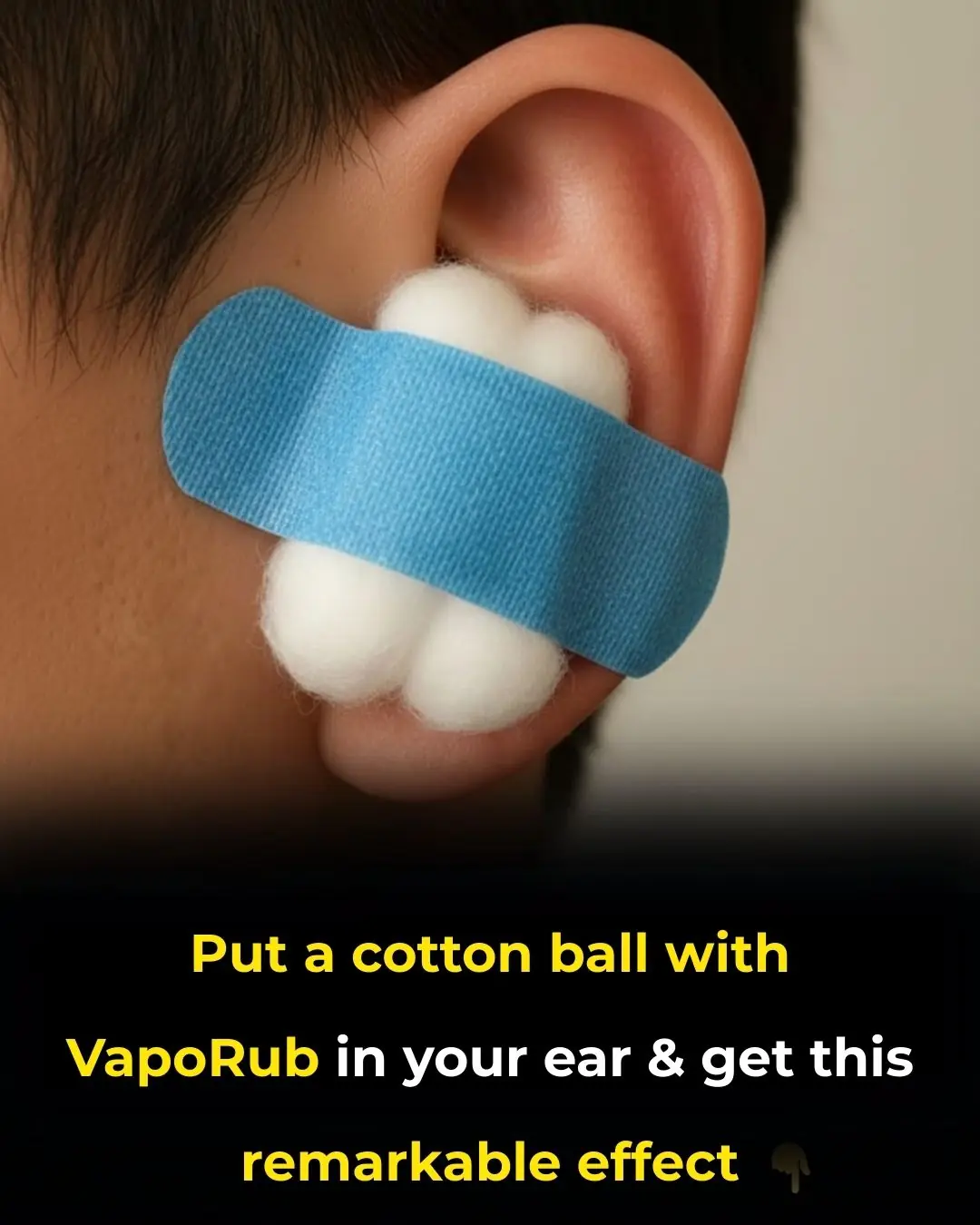
Put a cotton ball with VapoRub in your ear & get this remarkable effect

A Drink That May Help Reduce Cancer Risk: Not Tea or Coffee

Tips for preserving ginger without refrigeration

11 Health Warnings Your Fingernails May Be Sending

Whether It’s AA or AAA, Don’t Throw Them Away When They Run Out — Here’s a Simple Way to Revive Batteries in 10 Seconds

If the fan is dirty, you don't need to remove the frame or use water

Placing a Sock on Top of Your Air Conditioner: A Small Trick With Big Benefits—Especially on Scorching Days

My nana taught me this hack to strengthen thinning hair in 7 mins with 0 work. Here’s how it works

When you buy cilantro, don't put it in the refrigerator right away

Simple Tips to Clean Your Phone’s Speaker at Home — Anyone Can Do It
